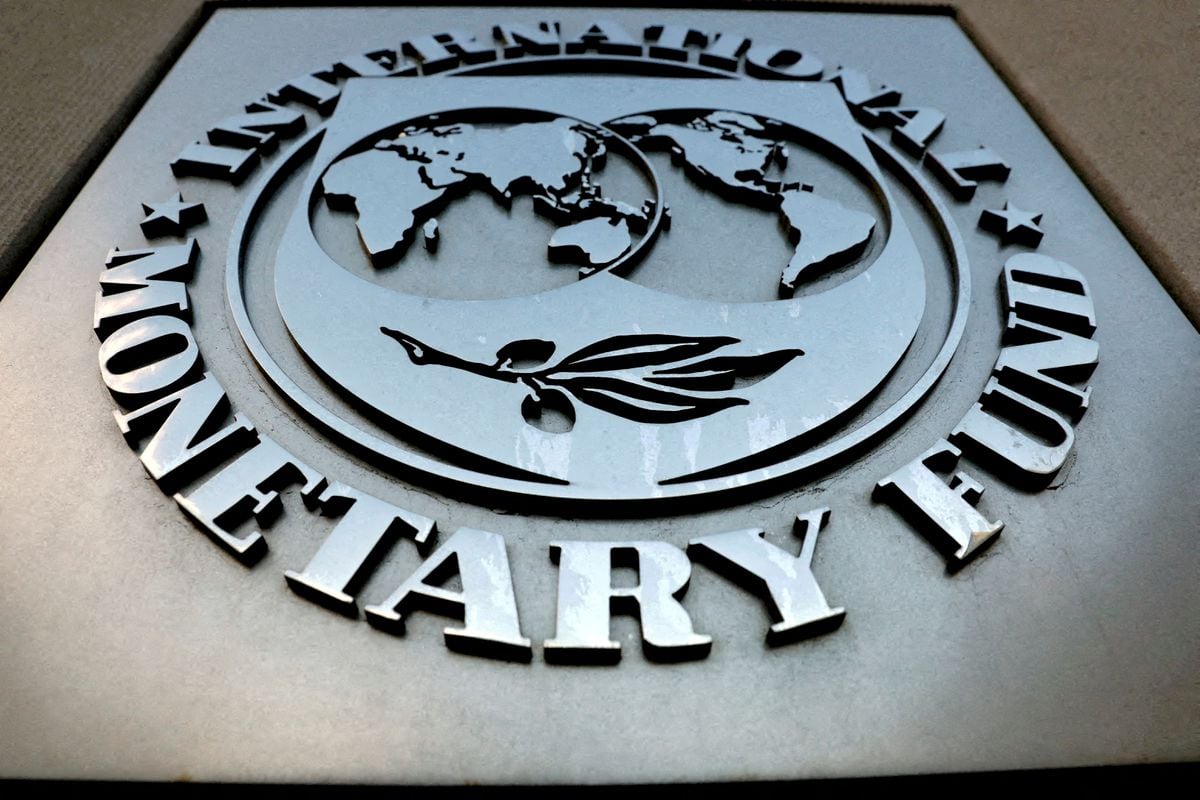It would have been quicker to lump the spring meetings of the International Monetary Fund (IMF), held this week in Washington, under the title of
The Recovery That Couldn't Be.
When the advanced economies were getting up after the punch of the coronavirus, the Russian invasion in Ukraine and new confinements in China arrived, decreed to contain a new wave of covid, and once again knocked down any aspiration to return to what was before.
And in this, Europe is far from an exception.
The agency warns in its regional forecast report presented this Friday that "the most worrying risk is a sudden interruption of energy flows from Russia, which would lead to significant production losses."
The impact would be especially strong in Central and Eastern Europe.
Official forecasts currently point to advanced European economies growing by 3% in 2022, one point less than the previous forecast, and emerging economies by 3.2%, one and a half points less.
"The war has been a serious setback for the strong but incomplete recovery from the pandemic on the continent, which has depended too much on public investment," Alfred Kammer, director of the IMF's European department, explained this week in an interview with EL PAÍS and journalists from
Le Figaro, La Repubblica
and
Die Welt,
associated newspapers in the LENA media alliance.
“By incomplete we mean that it left private consumption well below pre-crisis levels, even though fiscal and monetary support fueled an impressive rebound in employment.
Rising energy and food prices [caused by the war] are deeply affecting household consumption, and economic uncertainty threatens investment.
At the same time, this crisis is a reminder that Europe must do more to improve energy security by investing in renewables and improving efficiency."
Forecasts for Russia and Ukraine are negative: their economies will shrink by 35% and 8%, respectively, according to Kammer.
Asked Kammer if the institution fears a future of energy rationing in Europe if the war continues and sanctions against Russia increase, the economy detailed "several scenarios" managed by the Fund "in which power cuts could occur, particularly gas ”, warns the economist.
“We believe that in the first six months, the situation would be manageable by turning to alternative sources of supply.
If the interruption were to last until winter, the measures would then be insufficient.
The shortage could be around 20% in that case.
Putting ourselves in the worst, if the
shock
If it were global, it could mean a 3% reduction in European GDP.
There is an urgent need to find alternative energy supplies, and liquefied natural gas is one of them.
Governments are on it: looking for oil pipelines, resorting to the Algerian alternative, building infrastructure, working on renewable energies... There is also a need to develop contingency plans.
Because one of the big problems with these cuts is that they would not only affect heating, but also industry and production”.
Kammer recognizes that these energy setbacks will not affect everyone equally, and therefore encourages "solidarity agreements between countries."
On measures such as those applied by Spain to lower the price of gasoline, the European director of the IMF recalls that if tax reductions are introduced "they must always be temporary, and it is convenient to stop applying them as soon as possible".
"We calculate that the fiscal costs of these measures will be around 0.5% in the Spanish case, a figure that cannot be considered excessive in a situation like this."
One of the main threats is inflation, which will grow by 5.5% in advanced countries and 9.1% in emerging countries in 2022, and will be worse in economies whose consumption basket is especially heavy on energy and food.
Places like, according to the IMF in its report, Spain, Romania and Slovakia.
“While much of the pressure is being put on by forces beyond the control of central banks, policymakers must continue to normalize credit conditions to help contain inflation.
We recommend that governments work with the social partners to increase wages and limit company profits for the duration of the crisis, in order to avoid wage and price spirals.
Also,
that they support households and companies in their fight against the escalation in the cost of basic products, and that they make the allocation grow.
unemployment, while lowering taxes.
These measures will widen fiscal deficits while weakening growth prospects.
To achieve these objectives, the report presented this Friday establishes that “fiscal policy is more appropriate than monetary policy.
Automatic fiscal stabilizers must be allowed to operate freely, while additional spending is allocated for humanitarian aid” for the five million refugees already pushed out of Ukraine by the war.
"The pace of withdrawal of monetary stimulus should vary depending on economic circumstances," concludes the IMF.
For Spain, the IMF lowers expectations for 2022 by one and a half points for 2023, with respect to the projections made by the fund in January.
The good news is that the adjustment for 2024 predicts 0.8% more growth, the highest figure in Europe.

/cloudfront-eu-central-1.images.arcpublishing.com/prisa/YYIAGSB6WRUEE2T3JZTFVF2LKE.jpg)


/cloudfront-eu-central-1.images.arcpublishing.com/prisa/K5MEQYX754ZCFV3SALU5I2KWQQ.jpg)

/cloudfront-eu-central-1.images.arcpublishing.com/prisa/VU7S6EWZZVMMDGHINQUMAFJHCE.jpg)






